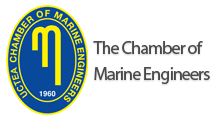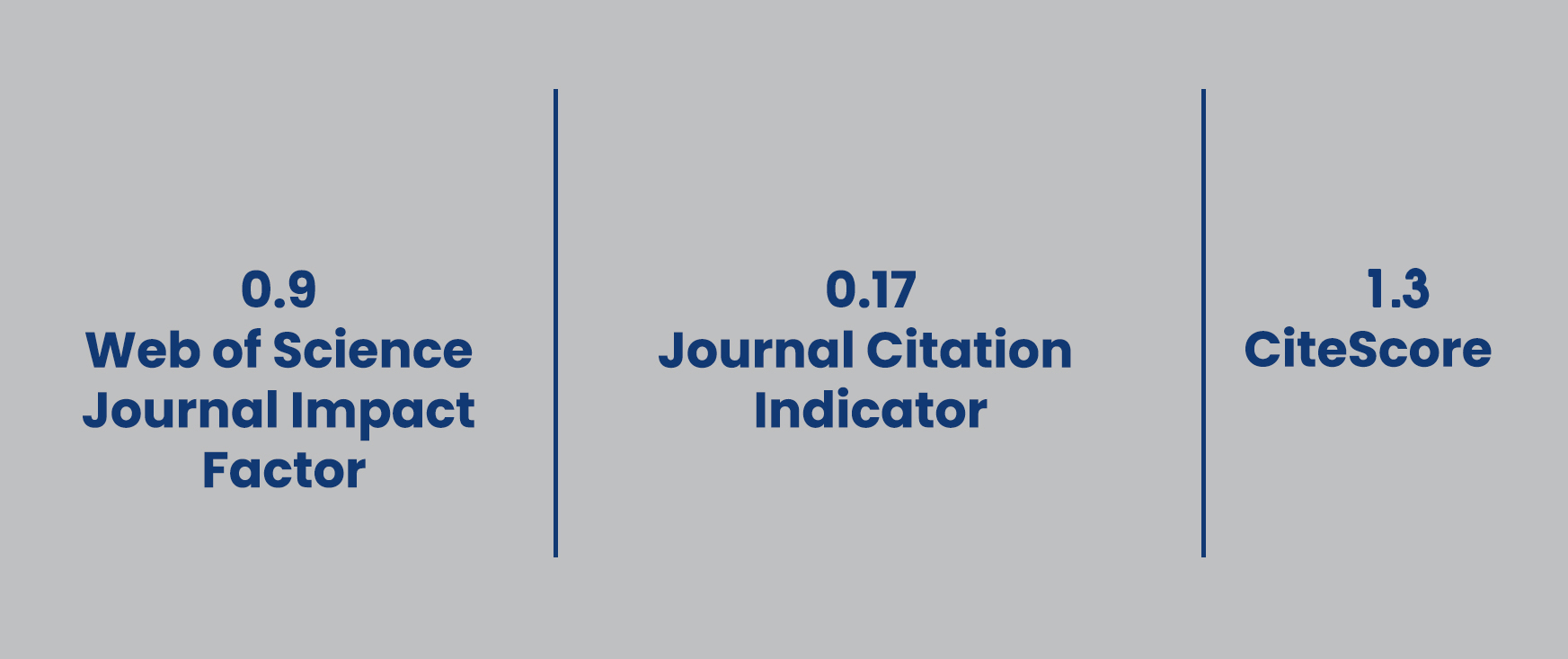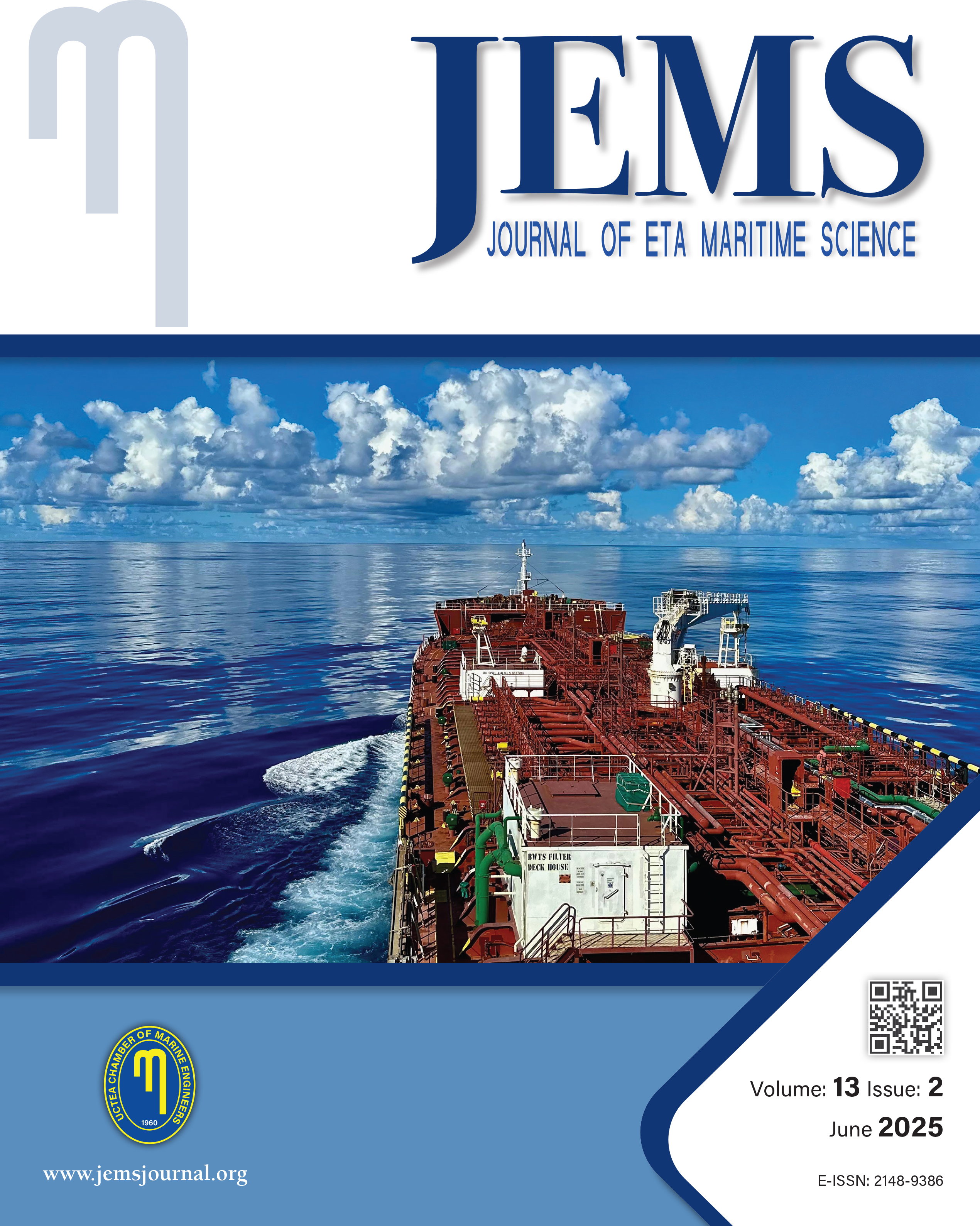

JEMS apply the Creative Commons Attribution NonCommercial 4.0 International Licence to all manuscripts to be published
ABSTRACTING & INDEXING
Volume: 8 Issue: 3 - 2020
| EDITORIAL (ED) | |
| 1. | Editorial Selçuk Nas doi: 10.5505/jems.2020.75983 Page 133 Abstract | |
| FULL TEXT | |
| 2. | Journal of ETA Maritime Science (Volume: 8 Issue: 3, 2020). Pages 133 - 212 Abstract | |
| ORIGINAL RESEARCH (AR) | |
| 3. | The Moderating Role of Sea Service Period on the Relationship between Perceived Organizational Justice and Job Satisfaction; Evidence from Seafarers Murat Yorulmaz, Gonul Kaya Özbağ doi: 10.5505/jems.2020.35693 Pages 134 - 149 Although the number of organizational justice studies has increased rapidly in recent years, little research has focused on fairness perceptions of seafarers. Therefore, this paper intended to fill the gap by investigating the effect of organizational justice perceptions of seafarers on their job satisfaction described by three facets including procedural justice, distributive justice and interactional justice. The data obtained through face-to-face survey technique were analyzed using SPSS 22 and AMOS 22 (with PROCESS macro) statistical package programs. The findings generated from regression analysis point that justice perception of seafarers positively affects their job satisfaction level. Furthermore, the length of seafarers sea service has a moderating role between perceived organizational justice and job satisfaction. The managerial implications of the results are discussed in light of the particular context of the maritime industry with some suggestions for enhancing justice and satisfaction perceptions of seafarers. |
| 4. | Analysis of Operational Performance of Crude Oil Refining and Petrochemical Jetties in Nigeria Donatus.E. Onwuegbuchunam, Moses.O. Aponjolosun, Sodiq.O. Buhari, Dotun Ojo doi: 10.5505/jems.2020.98705 Pages 150 - 160 This paper assessed the performance of jetty operations in Warri Refining and Petrochemical Company (WRPC). Primary data for the study consisted of ship turn round times, volume of cargo and number of vessels handled at the jetties for years 2004 to 2018. These variables served as key performance assessment criteria. In addition, copies of questionnaires on postulated factors affecting terminal performance were administered to a random sample of WRPC staff. Our findings showed that the jetties were being operated at less than optimum level. Trend analysis of the key performance indicators showed existence of continuous decline in operational performance of WRPC over the years covered in the study. Significant factors accounting for this performance outcome were found to include: inadequate berthing facilities, shortage of manpower supply, pipeline vandalisation, inadequate maintenance of jetty facilities and poor documentation process. The study recommended deployment of trained workforce to jetty operations, maintenance of berthing facilities, adequate funding and improved documentation of processes during jetty operations. |
| 5. | Gender Discrimination Perception Among Maritime Students In Turkey Volkan Fidan, ESİN GÜNAY, Gamze Akpınar, Can Atacan doi: 10.5505/jems.2020.31932 Pages 162 - 176 Gender discrimination is a controversial issue that is being debated around the world, independently the level of development of countries. This discrimination is tried to be prevented by legal regulations. However, it is a practice problem rather than law in business life. The maritime sector is one of the sectors considered to be more prevalent in stereotypes of gender roles. It is thought that this discrimination is applied more in occupational groups that require physical force. It was aimed to determine the perceptions of associate degree students in maritime programmes about gender discrimination related to maritime profession at public universities across Turkey. The result of the study reveals that the perception of gender discrimination is higher among female students than male. Especially Underwater Technology students perception of gender discrimination is higher than Maritime Transport and Management, and Yacht Master students. It proves that women can not find any job in the industrial diving sector due to restrictions of Turkish Labor Law although they have education in Underwater Technology programmes. |
| 6. | Investigation of the Effect of Number of Longitudinal Rounded Grooves on Hydrodynamic Forces acting on Cylinders in Cross Flow at Re=100000 Oktay Yilmaz doi: 10.5505/jems.2020.49354 Pages 178 - 193 Crossflow over cylindrical structures has been extensively studied by both academia and industry in various fields. It is responsible for in-line and transverse vibrations of marine risers. Flow-induced structural vibrations may end up with the failure of these tubular systems in oceans and seas. First experimental studies in literature signified that longitudinally grooved cylinders inspired by Saguaro trees may offer reductions both in drag and lift forces. In the present study, the performance of 2 dimensional (2D) unsteady Reynolds averaged Navier-Stokes (URANS) simulations is tested in predicting hydrodynamic force coefficients of cylinders. First, CFD runs are conducted on a smooth cylinder and a cactus-like cylinder in literature. Then flow over 8-, 10-, and 12-grooved cylinders with a diameter of 0,5 m are solved to analyze flow features in detail and evaluate the capability of 2D URANS solver for the problem at hand. k-ω SST turbulence model is employed in URANS solver. It is shown that as the number of grooves increases, mean drag slightly decreases and amplitude of drag decreases by 29%. Separation angle is significantly improved with a number of grooves from 92° to 120°. However, the amplitude of lift force increases with the number of grooves with reference to 2D CFD simulations. |
| 7. | Raising Awareness About Women in Turkish Maritime Industry Nihan Senbursa, Pinar Ozdemir doi: 10.5505/jems.2020.41275 Pages 194 - 209 The maritime sector is male-dominated. Women working in this sector face the challenges of not only working in a male-dominated working environment but also being at sea, far from their home and families for a long time. Moreover, they struggle with many misperceptions and prejudice against them. In this study, such negative feelings against women in the Turkish maritime sector are examined thoroughly, and the elimination ways of them are examined. The data in this research have collected by employing survey and structured interview methods. After evaluation, the main stakeholders who have a role in building career path of the women in maritime industry are determined as being the women themselves, their male colleagues, families, education institutions, and employers in the sector. In conclusion, the roles of these stakeholders in eliminating negative attitudes towards women are discussed. |
| ACADEMIC PERSPECTIVE | |
| 8. | Antarctic Research Strategy of Turkey Ersan Başar doi: 10.5505/jems.2020.33254 Pages 210 - 212 Antarctic Research Strategy of Turkey |










